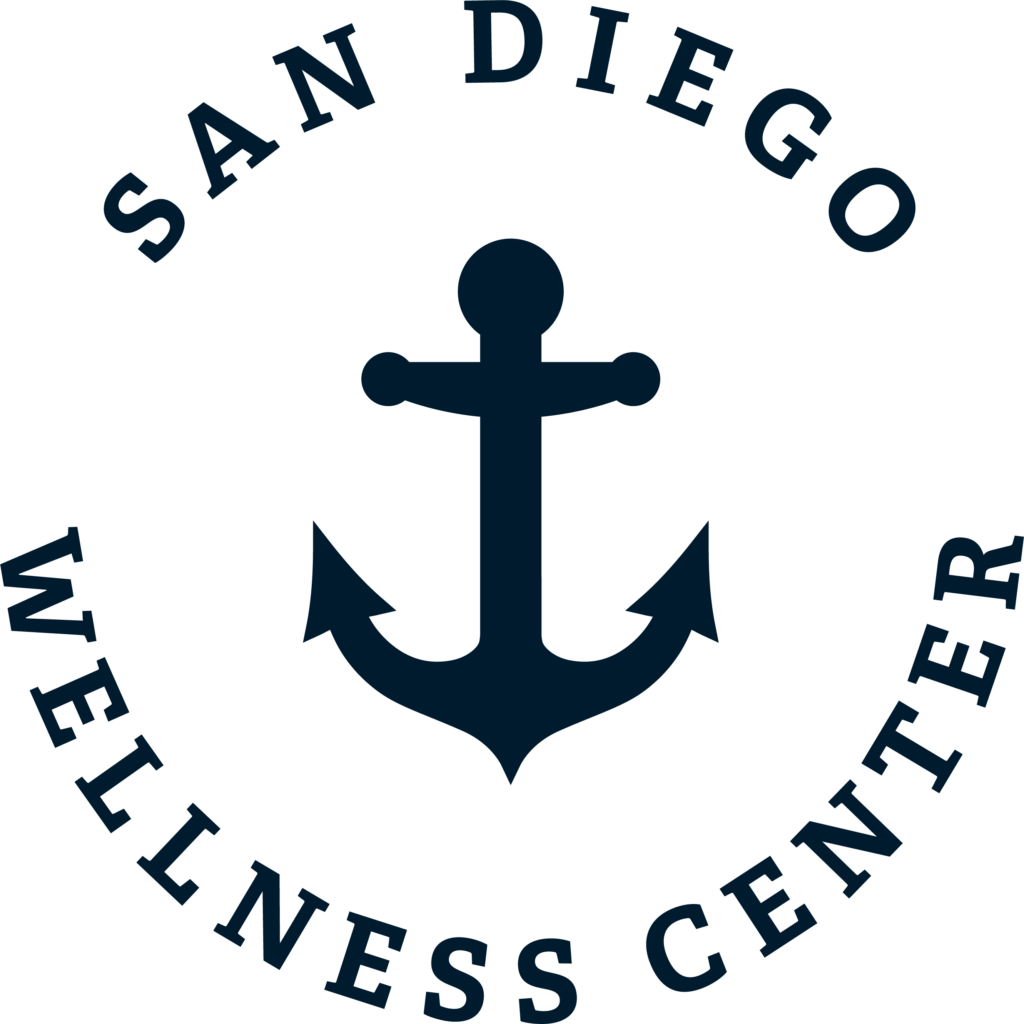Key Takeaways:
- Alcohol rehab length varies, but common inpatient timelines are 30, 60, or 90+ days based on severity, co-occurring issues, and progress.
- Alcohol detox usually lasts about 5–10 days, with withdrawal symptoms starting within hours and peaking around 24–72 hours.
- Severe alcohol withdrawal can be life-threatening, so medically supervised detox with monitoring and medications is recommended for moderate to severe cases.
- Detox clears alcohol from the body, but long-term recovery typically requires residential treatment, therapy, and aftercare planning to prevent relapse.
How Long Is Alcohol Rehab?
If you’re considering alcohol treatment, you might wonder how long rehab lasts. Typically, it ranges from 30 days to several months, depending on factors like the severity of alcohol use, co-occurring mental health issues, and the level of care needed.
At San Diego Wellness Center, we tailor treatment plans to individual needs. Our process starts with medically supervised detox with 24/7 support. Then, our residential program offers structured, immersive care for lasting sobriety, whether for 30, 60, 90 days, or more.
We approach each holistically with evidence-based therapies like CBT, DBT, counseling, group therapy, and trauma care. Located in Southern California, you’ll access amenities, gourmet cuisine, and wellness activities. We also provide aftercare planning and collaborate with PHP for recovery. Treatment duration varies based on your progress and needs for a healthier, alcohol-free life.
How Long Does Alcohol Detox Last?
Alcohol detox typically lasts 5 to 10 days, depending on how heavily you’ve been drinking and your overall health.
What Happens During Detox
Detox is usually the first step in alcohol recovery. During this time, your body works to eliminate alcohol from your system. As the alcohol leaves, you’ll experience withdrawal symptoms that can range from mild to severe.
Factors That Affect Detox Length
Several factors determine how long your detox will take and how intense your withdrawal symptoms will be:
- How much you drink – Heavy drinkers typically have longer, more severe detox periods
- How often you drink – Daily drinking leads to stronger physical dependence
- Your overall health – Medical conditions can complicate detox
- Co-occurring mental health disorders – Conditions like anxiety or depression can affect withdrawal
- Previous detox attempts – If you’ve detoxed before, withdrawal may be more severe this time
Alcohol withdrawal can be dangerous and even life-threatening in severe cases. Medical detox provides monitoring and medications to keep you safe and comfortable throughout the process.
What Happens During Alcohol Detox?
During alcohol detox, your body goes through withdrawal as it adjusts to functioning without alcohol. Symptoms start within hours of your last drink and can range from mild to life-threatening.
Timeline of Withdrawal Symptoms
6 to 12 hours after last drink:
Mild withdrawal symptoms begin, including:
- Headaches
- Nausea
- Anxiety
- Sweating
- Shaking hands
24 to 48 hours after last drink:
Symptoms peak and may worsen. For people with severe alcohol addiction, dangerous symptoms can develop:
- Tremors
- Seizures
- Hallucinations
- Delirium tremens (DTs) – a life-threatening condition causing severe confusion, rapid heartbeat, and high fever
Severe alcohol withdrawal can be deadly without proper medical care. Healthcare professionals monitor your vital signs, provide medications to prevent seizures, and manage symptoms to keep you safe and comfortable.
After the initial detox phase (5-10 days), ongoing care through inpatient rehab or outpatient programs is essential. Detox clears alcohol from your body, but it doesn’t address the reasons you drink or teach you skills to stay sober. Continued treatment helps you manage cravings, understand your addiction, and build lasting recovery.
Who Needs Medically Supervised Detox?
While not everyone requires medically supervised detox, it is strongly recommended for those with moderate to severe alcohol addiction, co-occurring mental health disorders, or a history of withdrawal complications. Detox provides a structured and supportive environment where healthcare professionals can monitor symptoms, provide medication-assisted treatment if needed, and address any medical emergencies.
Completing detox helps set the foundation for a successful recovery by preparing you to engage fully in inpatient alcohol rehab or outpatient treatment programs, where you can address the underlying causes of addiction and work toward long-term sobriety.
How Long Is Inpatient Alcohol Rehab?
How long is inpatient alcohol rehab? The length of an alcohol rehab program is tailored to meet individual needs, providing flexibility to address the severity of the addiction, co-occurring disorders, and personal recovery goals. Programs are generally offered in 30-day, 60-day, and 90-day formats, each providing a structured path toward long-term sobriety.
The ideal program length depends on your history with alcohol use, withdrawal symptoms, and your readiness to commit to a treatment plan. According to the National Institute on Alcohol Abuse and Alcoholism, finding the right treatment program is essential for successful recovery.
30-Day Alcohol Rehab Program
A 30-day program is an intensive and focused option for individuals seeking a shorter-term commitment to recovery. This program typically includes:
- alcohol detox
- therapy sessions
- The development of coping skills to address cravings and triggers.
While a 30-day program can be effective, it is often recommended for those with milder alcohol use disorders or as a starting point before transitioning to outpatient treatment or aftercare programs.
60-Day Alcohol Rehab Program
A 60-day program provides more time for individuals to dig deeper into the root causes of their alcohol addiction and build a stronger foundation for sobriety. With two months of residential treatment, you can benefit from more extensive therapy sessions, group therapy, and behavioral health interventions. This program length is ideal for those who need additional time to stabilize, address co-occurring disorders, or develop life skills to support long-term sobriety.
90-Day Alcohol Rehab Program
The 90-day program is often considered the gold standard for individuals with severe alcohol addiction or a history of relapses. This extended program allows for a complete treatment process, including
- detoxification
- individualized therapy
- group therapy
- The integration of aftercare planning
The longer duration provides ample time to address complex health conditions, develop sustainable coping strategies, and create a solid support network. Studies show that longer treatment durations are often associated with higher success rates in achieving and maintaining long-term recovery.
Understanding The Alcohol Withdrawal Timeline
The alcohol withdrawal timeline varies from person to person, depending on factors like the severity of alcohol use, overall health, and whether the withdrawal process is medically supervised. Symptoms often begin within a few hours after the last drink, peak within a couple of days, and gradually subside over a week or more.
Knowing the stages of withdrawal can help you and your loved ones prepare for the detox process and seek the appropriate level of care.
6 to 12 Hours After Last Drink
Within 6 to 12 hours of the last drink, the initial withdrawal symptoms typically appear. These may include:
- Mild anxiety
- Nausea
- Headaches
- Sweating
- Insomnia
While these symptoms are uncomfortable, they are usually manageable with proper hydration and rest. For heavy drinkers, however, symptoms can escalate quickly, requiring medical supervision.
24 to 48 Hours After Last Drink
Withdrawal symptoms often peak during this period, becoming more intense and potentially dangerous. You may experience:
- Tremors
- Confusion
- Rapid heart rate
- High blood pressure
For some, seizures can occur, making this stage particularly critical for medical monitoring in a detox facility.
48 to 72 Hours After Last Drink
For those with severe alcohol use disorder, withdrawal symptoms may intensify during this phase, with the possibility of developing delirium tremens (DTs). DTs are life-threatening and can include:
- Hallucinations
- Severe confusion
- Agitation
Medical detox is necessary at this stage to manage these symptoms safely.
4 to 7 Days After Last Drink
Symptoms typically begin to subside within 4 to 7 days, although you may still experience fatigue, irritability, or mild cravings. By this stage, the physical effects of alcohol withdrawal are usually under control, and the focus shifts to addressing the psychological aspects of recovery through therapy and support.
Post-Acute Withdrawal Syndrome
After the acute withdrawal phase, some individuals may experience lingering symptoms known as Post-Acute Withdrawal Syndrome (PAWS). These symptoms may include:
- Mood swings
- Sleep disturbances
- Cravings
These symptoms may persist for weeks or months. Ongoing therapy and support groups are important to managing PAWS and maintaining sobriety.
Maintaining Long-Term Sobriety
Sobriety is an ongoing process that evolves. Individuals in recovery often describe it as a daily commitment to their well-being and personal growth. Even after years of sobriety, the risk of relapse remains, especially during periods of stress or significant life changes.
Recovery requires consistent vigilance, support from loved ones, and engagement with aftercare programs to sustain long-term sobriety. While the intensity of recovery efforts may lessen over time, the process itself never truly ends, reinforcing the importance of a lifelong commitment to health and wellness. The National Institute on Drug Abuse emphasizes that effective treatment addresses all of a patient’s needs, not just their substance use.
CBT Therapy San Diego for Alcohol Recovery
San Diego Cognitive Behavioral Therapy plays a vital role in alcohol rehab programs. CBT therapy in San Diego helps you identify and change negative thought patterns that contribute to alcohol use. This evidence-based approach gives you practical tools to develop healthy coping mechanisms and address triggers and cravings.
At San Diego Wellness Center, we incorporate San Diego CBT counselling into our residential treatment programs to help you build a strong foundation for recovery. Our therapists work with you individually to address the underlying issues that may have contributed to your alcohol use.
Finding Outpatient Help After Inpatient
Transitioning from inpatient alcohol rehab to outpatient care is a vital step in the recovery process. Outpatient programs provide continued support and structure while allowing you to reintegrate into your daily life. These programs, which may include Partial Hospitalization Programs (PHP), offer:
- Therapy sessions
- Group counseling
- Ongoing medical support
They help you address the challenges of maintaining sobriety in real-world settings, providing a critical bridge between the highly structured environment of inpatient care and the independence of everyday life. SAMHSA’s National Helpline offers free, confidential treatment referral and information services for individuals and families facing substance use disorders.
Begin Your Recovery Today
Your path to recovery starts with taking that first step. If you or a loved one are struggling with alcohol addiction, don’t wait to seek help. Contact San Diego Wellness Center today to learn more about our personalized treatment programs and how we can support you in achieving sobriety.
Our admissions team provides:
- Confidential assessments
- Insurance verification
- Treatment recommendations to help you start your recovery right away
Together, we can help you build a healthier, happier future.
FAQ’s
How long does alcohol rehab usually last?
Alcohol rehab typically lasts 30, 60, or 90 days, but some people benefit from staying longer depending on symptoms, relapse history, and mental health needs.
How long does alcohol detox take?
Alcohol detox usually lasts 5 to 10 days, depending on how heavily and how often you’ve been drinking, plus your overall health.
When do alcohol withdrawal symptoms start and peak?
Symptoms can start within 6 to 12 hours after your last drink and often peak around 24 to 72 hours. Severe cases can include seizures or delirium tremens.
Do I need medically supervised detox?
Medical detox is strongly recommended if you have moderate to severe drinking, a history of intense withdrawal, or co-occurring anxiety, depression, or other mental health concerns.
What happens after detox is over?
Detox clears alcohol from your body, but rehab helps you stay sober with therapy, relapse prevention, coping skills, and aftercare planning, including step-down support like PHP when appropriate.


